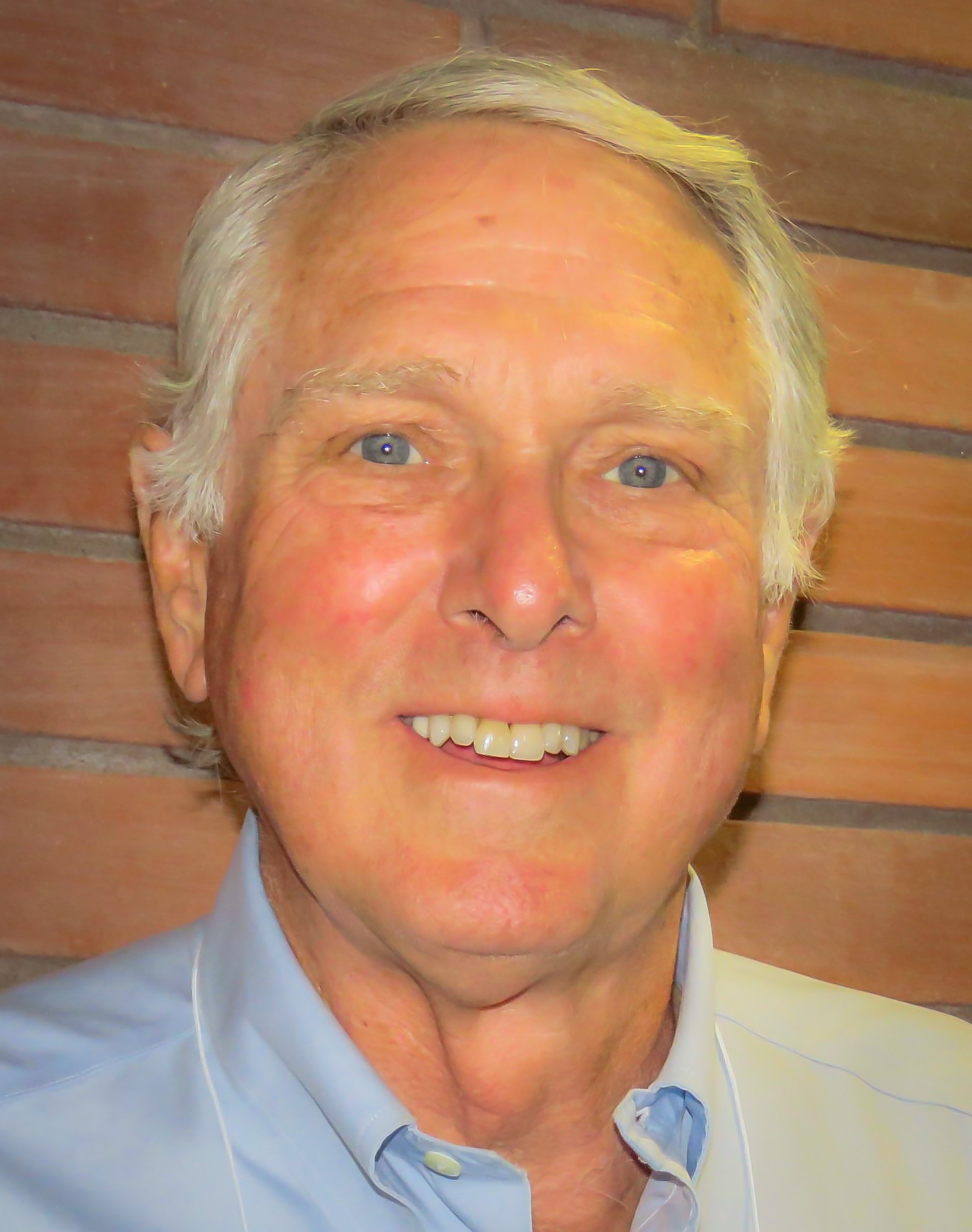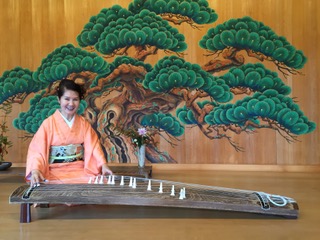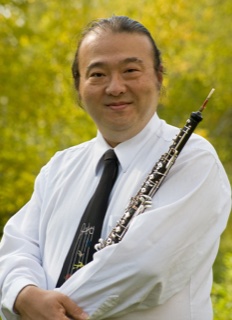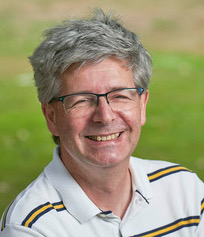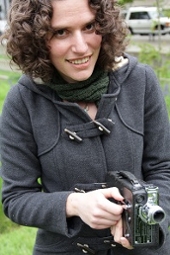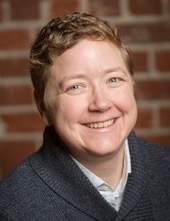Tuesday, September 6
| 10:00 am-10:05 am | "Opening remarks and Introduction of Carol Long," Jinx Brandt, Eric Reif, Kaneko Auditorium
Jinx give the opening remarks in the absence of Executive Director, Joan Robinson. Eric Reif started in September of 2018. |
| 10:05 am-11:00 am | "Willamette University’s Strategic Plan," Carol Long, Kaneko Auditorium 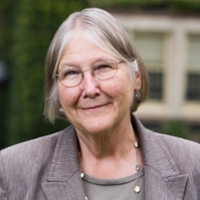 Carol Long is filling in for President, Steve Thorsett.
Carol Long is filling in for President, Steve Thorsett. Carol S. Long is the provost and Senior Vice President of Willamette University. |
| 11:00 am-12:00 pm | "Opening Day Remarks and Introductions," Jinx Brandt, Kaneko Auditorium 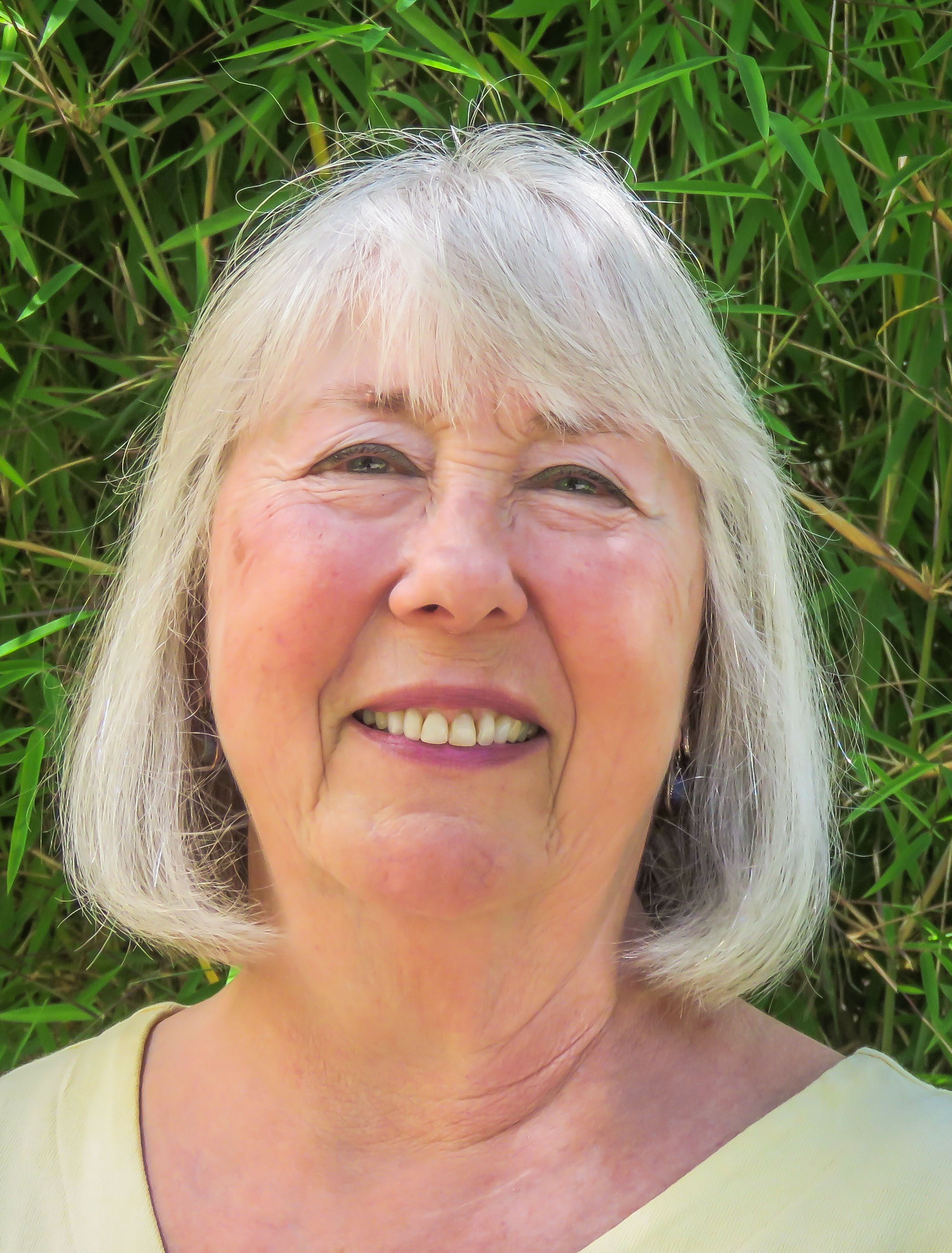
Introduction of ICL Board Members Jinx is Director of Curriculum Services for ICL and has been a member of ICL since January, 2010. |
Thursday, September 8
| 10:00 am-12:00 pm | "Rightlandia: Walter Huss and the Long History of the Far Right in Oregon, 1955-2005," Seth Cotlar [Jeanette Flaming], Kaneko Auditorium 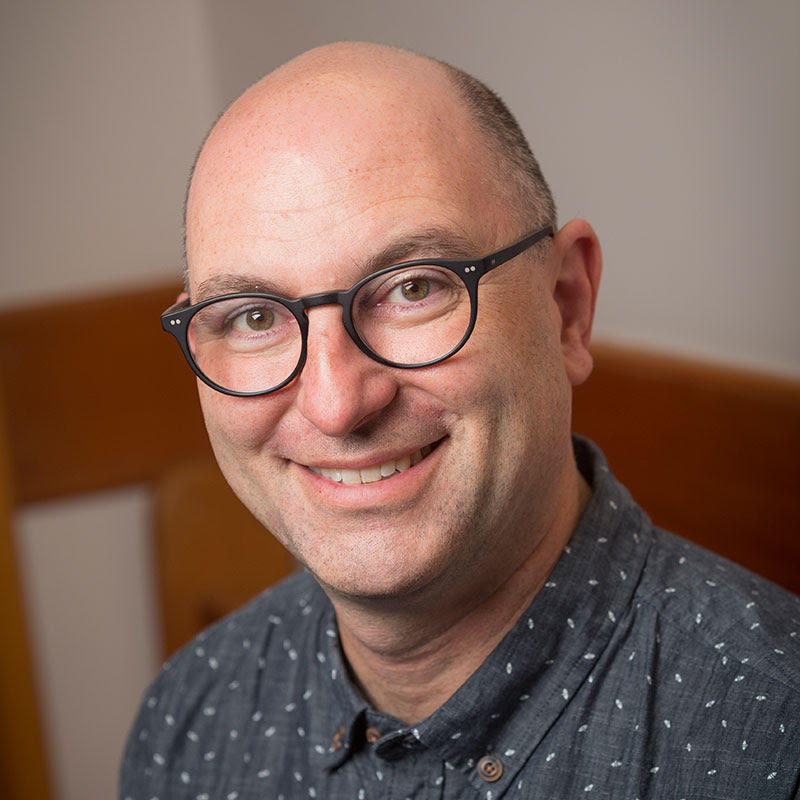 I've spent most of this summer at the U of O library doing research in the archival records left behind by Walter Huss, one of Oregon's leading conservative activists from the late 1950s up into the early 2000s who was elected chair of the Oregon Republican Party in 1978. Huss, an ordained Foursquare Church minister who called himself a "Christian Patriot," worked on almost every conservative campaign one can think of, from the anti-communist crusades of the 1960s to the efforts to ban sex education in schools in the 70s to the anti-tax revolts of the 80s to the pro-life movement of the 90s. He was a strong supporter of Barry Goldwater in 1964, and then attended the GOP conventions in 1976, 1980, and 1984 as a delegate for Ronald Reagan. He was the proud owner of a picture he took standing beside Dan Quayle when the Vice President visited Portland in 1990. So far, this all seems normal enough. What I've discovered in the 57 boxes of archival material Huss left behind, however, has been fairly shocking. Huss turns out to have been a virulent and obsessive antisemite who believed his entire life that the nation was run by a conspiratorial cabal of Jews who he thought were America-hating Communists who cynically used black civil rights activists like Martin Luther King, Jr. and "the homosexual agenda" to take America away from the white Christian, "pro-family" people who he thought were the "real Americans." Huss had ties to dozens of neo-Nazi and right wing domestic terrorist groups in Oregon and around the nation. He subscribed to (and closely read) scores of fringe publications that espoused far right causes like white nationalism and Holocaust denial. How did such a person manage to win an election to serve as the chair of the Oregon Republican Party in the summer of 1978? Why have so few Oregonians, including people with a close knowledge of Oregon politics, ever heard of him? To what extent does Huss's decades-long, grassroots populist effort to push the Oregon Republican Party to the right help us understand the current state of the OR GOP (which had long been known for producing moderate to liberal leaders like Hatfield, Packwood, and McCall in the 1960s and 1970)? How does Huss's story help us understand the ascendency of "grassroots right wing populism" inside the national GOP from the 1980s up to our present moment? Those are the questions I will puzzle through with the audience, using photographs of the materials I've discovered in Huss's papers this summer.
I've spent most of this summer at the U of O library doing research in the archival records left behind by Walter Huss, one of Oregon's leading conservative activists from the late 1950s up into the early 2000s who was elected chair of the Oregon Republican Party in 1978. Huss, an ordained Foursquare Church minister who called himself a "Christian Patriot," worked on almost every conservative campaign one can think of, from the anti-communist crusades of the 1960s to the efforts to ban sex education in schools in the 70s to the anti-tax revolts of the 80s to the pro-life movement of the 90s. He was a strong supporter of Barry Goldwater in 1964, and then attended the GOP conventions in 1976, 1980, and 1984 as a delegate for Ronald Reagan. He was the proud owner of a picture he took standing beside Dan Quayle when the Vice President visited Portland in 1990. So far, this all seems normal enough. What I've discovered in the 57 boxes of archival material Huss left behind, however, has been fairly shocking. Huss turns out to have been a virulent and obsessive antisemite who believed his entire life that the nation was run by a conspiratorial cabal of Jews who he thought were America-hating Communists who cynically used black civil rights activists like Martin Luther King, Jr. and "the homosexual agenda" to take America away from the white Christian, "pro-family" people who he thought were the "real Americans." Huss had ties to dozens of neo-Nazi and right wing domestic terrorist groups in Oregon and around the nation. He subscribed to (and closely read) scores of fringe publications that espoused far right causes like white nationalism and Holocaust denial. How did such a person manage to win an election to serve as the chair of the Oregon Republican Party in the summer of 1978? Why have so few Oregonians, including people with a close knowledge of Oregon politics, ever heard of him? To what extent does Huss's decades-long, grassroots populist effort to push the Oregon Republican Party to the right help us understand the current state of the OR GOP (which had long been known for producing moderate to liberal leaders like Hatfield, Packwood, and McCall in the 1960s and 1970)? How does Huss's story help us understand the ascendency of "grassroots right wing populism" inside the national GOP from the 1980s up to our present moment? Those are the questions I will puzzle through with the audience, using photographs of the materials I've discovered in Huss's papers this summer. Seth Cotlar is a Professor of History at Willamette University in Salem, OR. He's currently working on an article entitled “Rightlandia: Walter Huss and the Long History of the Far Right in Oregon, 1955-2005.” Huss was an anti-communist crusader with ties to white nationalists and neo-Nazis who, in 1978, was elected chair of the Oregon Republican Party. Cotlar teaches courses on the history of the far right and the history of American Conservatism. His first book was Tom Paine's America: The Rise and Fall of Transatlantic Radicalism in the Early American Republic (University of Virginia Press, 2011), which won the James Broussard Prize for Best First Book from the Society for Historians of the Early American Republic. He also co-edited Historian in Chief: How Presidents Interpret the Past |
Tuesday, September 13
| 10:00 am-12:00 pm | "Music of the Japanese Koto, Shakuhachi and Shamisen ," Masumi Timson and Mitch Iimori [Bob Muir], Cone Chapel Masumi and Mitch will give a PowerPoint presentation on the Japanese traditional instruments (Koto/Shakuhachi/Shamisen) and play solo and duet pieces of traditional and contemporary Japanese music, and western music.
|
| 1:00 pm-2:00 pm | "Great Decisions DVD: Changing Demographics," Jeanette Flaming, Kaneko Auditorium 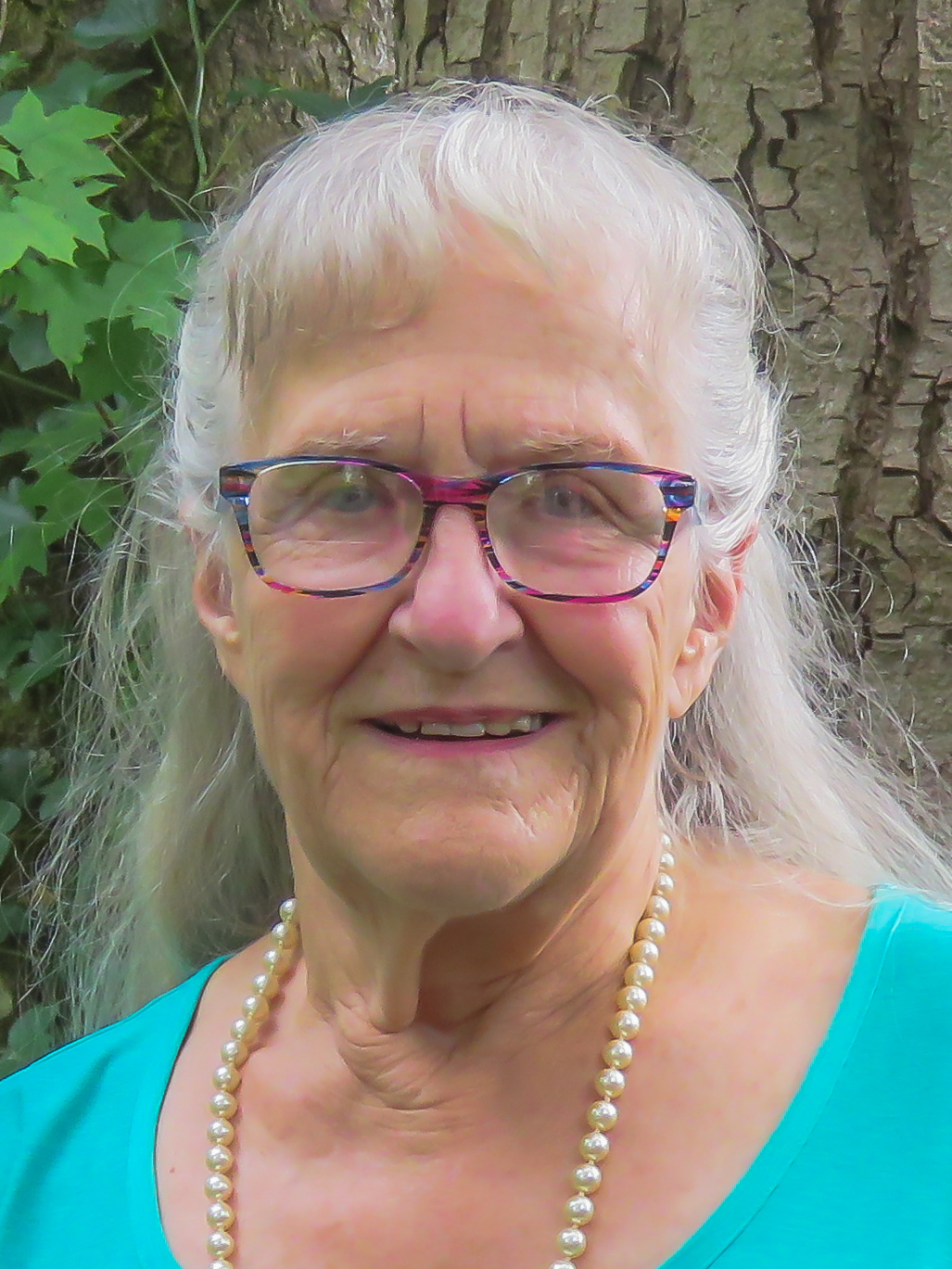 The world experienced remarkable demographic changes in the 20th century that continue today and have resulted in far-reaching social, economic, political, and environmental consequences all over the globe. These consequences are creating mounting challenges to development efforts, security, the environment, as well as the sustainability of human populations. By Joseph Chamie The world experienced remarkable demographic changes in the 20th century that continue today and have resulted in far-reaching social, economic, political, and environmental consequences all over the globe. These consequences are creating mounting challenges to development efforts, security, the environment, as well as the sustainability of human populations. By Joseph ChamieJeanette Flaming has been a member of ICL since September 2000. |
| 2:00 pm-3:00 pm | "Great Decisions DVD: Myanmar and ASEAN," Sally Schriver [Jeanette Flaming], Kaneko Auditorium 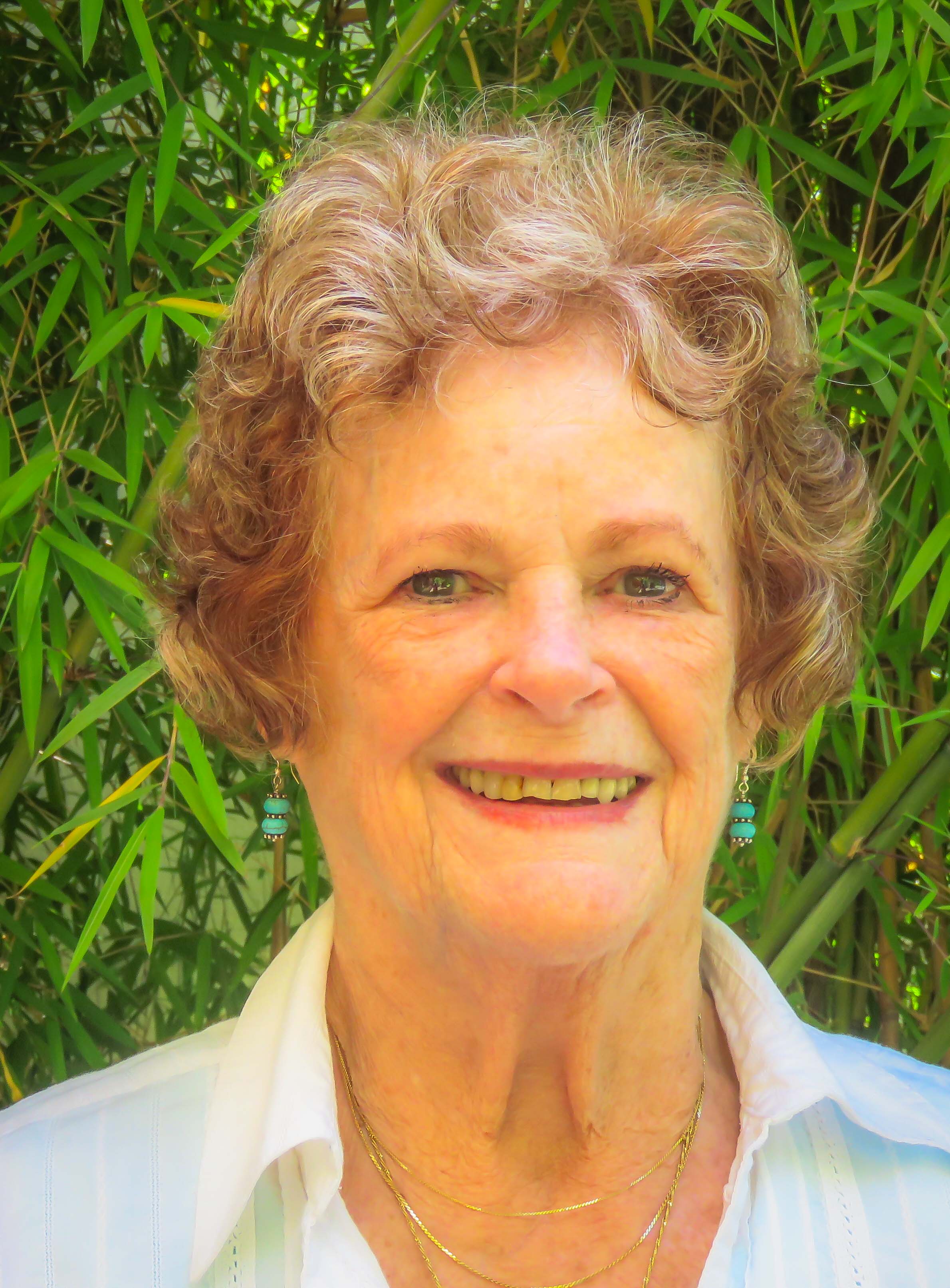 The situation in Myanmar, including the coup by the military in February 2021 and the ongoing human rights crises, coupled with civil resistance by those opposed to the regime, has led to the chaos in the Southeast Asian country. How are neighboring countries reacting, and what role will ASEAN play? By Hunter Marston The situation in Myanmar, including the coup by the military in February 2021 and the ongoing human rights crises, coupled with civil resistance by those opposed to the regime, has led to the chaos in the Southeast Asian country. How are neighboring countries reacting, and what role will ASEAN play? By Hunter MarstonSally Schriver joined ICL in September 2003. |
Thursday, September 15
| 10:00 am-11:00 am | "The Amazing Shield of Achilles (Homer, Iliad 18,478-608)," Ortwin Knorr [Ann Boss], Kaneko Auditorium
Homer’s famous description of the wonderful shield that the god Hephaestus crafts for Achilles in the Iliad (book 18, lines 478–608) offers a fascinating glimpse into a world from 2,700 years ago: cities in war and peace, agricultural activities, a law court in session, weddings and a harvest festival. In some ways, this is a typical ecphrasis (description of an art object), comparable to Homer’s description of the shields of Ajax (7.219-225) and Agamemnon (11.35-41), the scepter of Agamemnon (1.234–239), and Odysseus’ boar-tusk helmet (10.260-171). In others, however, this shield description is very unusual, not just because of its exceptional length. In fact, scholars have been unable to agree what the designs on Achilles’ shield mean, what the purpose of this lengthy excursus is, and even whether these verses constitute an ecphrasis at all. In this talk, I hope to provide some possible answers. A serviceable, free translation of the description of the shield is available Here's all of Book XVIII if you'd like to read more Dr. Ortwin Knorr, Willamette University Professor of Classics |
| 11:00 am-12:00 pm | "NW College of ArtPacific Northwest College of Art and Willamette University, A Collaboration," Jennifer Cole [Barbara Sellers-Young], Kaneko Auditorium 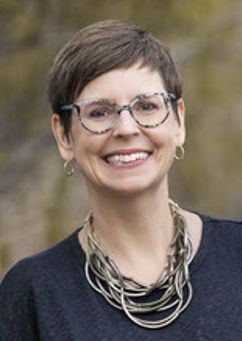 College of Art in Portland. PNCA, the Northwest’s oldest professional school for art and design, will become an integrated part of Willamette while retaining its name, identity, faculty, and campus in Portland. The Center for Contemporary Art & Culture, as well as PNCA’s other academic centers and collections. Her presentation considers the future of arts education in the Pacific Northwest and how the collaboration
College of Art in Portland. PNCA, the Northwest’s oldest professional school for art and design, will become an integrated part of Willamette while retaining its name, identity, faculty, and campus in Portland. The Center for Contemporary Art & Culture, as well as PNCA’s other academic centers and collections. Her presentation considers the future of arts education in the Pacific Northwest and how the collaboration Jennifer Cole comes to Willamette from her position as the executive director of programs and public affairs at the Herberger Institute for Design and the Arts at Arizona State University. Prior to ASU, she served as the executive director of the Metro Arts: Nashville Office of Arts and Culture, where she spent nearly a decade as the city’s chief cultural officer. She also served as a board member of Americans for the Arts, chaired the U.S. Urban Arts Federation and currently serves in a variety of advisory capacities with national arts and policy groups, including Creative Youth Development Network, ArtPlace America, Creative Capital, Grantmakers in the Arts and the National Endowment for the Arts. |
Tuesday, September 20
| 10:00 am-12:00 pm | "Samurai in the Oregon Sky: The Film & It's Making," Ilana Sol [Bob Muir], Kaneko Auditorium
Filmmaker Ilana Sol will screen her 2019 documentary film Samurai in the Oregon Sky. The film tells the little-known story of a post-war reconciliation between a WWII Japanese pilot and the Oregonians who live in the region he once tried to attack. After the film, Ilana will discuss the archival research that was integral to the making of this film. Supplemental reading: |
| 1:00 pm-3:00 pm | "Local News: The Last Bastion of Democracy," Rachel Alexander [Jinx Brandt], Kaneko Auditorium 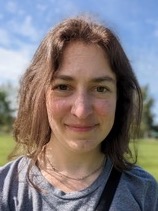 Today’s media landscape is fragmented and fraught with conflict. Journalists contend with increasing political extremism and hostility, continued layoffs and cutbacks, and long-overdue calls for us to reckon with the consequences of our reporting and accurately reflect the American public in our work. Today’s media landscape is fragmented and fraught with conflict. Journalists contend with increasing political extremism and hostility, continued layoffs and cutbacks, and long-overdue calls for us to reckon with the consequences of our reporting and accurately reflect the American public in our work.Drawing on my experience in the industry and research on the state of the American media and reader trust, I’ll trace the decline of print and the rise of online media in recent decades and the impact that’s had on local news. Then, I’ll delve into the current landscape, particularly for online and local media, and explain why the work we do remains relevant and important — and how we can better make that case to the public. Rachel is the managing editor at Salem Reporter, where she covers a mix of news about the city, local nonprofits and schools. She previously worked for local newspapers in Spokane and Walla Walla and has spent a decade in the news industry. She is the freedom of information chair for Oregon’s Society of Professional Journalists chapter and enjoys playing roller derby in her spare time. |
Thursday, September 22
| 10:00 am-12:00 pm | "The Aesthetics and Culture of Camp," Rachel Steck [Ann Boss], Kaneko Auditorium
"Camp” has been characterized as excessive, ostentatious, affected..., gay. It has been described as an aesthetic, sensibility, style, or taste where high art meets popular culture "in" fashion. Camp is where the Tiffany Lamp meets Lady Gaga, where Judith Butler meets Susan Sontag, or where drag meets Patrick Swayze. Historically speaking, to "read" camp is to "know" - to finally be "seen" within a culture that rarely "looks". Rachel’s presentation is an introduction to camp in its various forms. Like camp itself, the presentation will bring together high theory and popular culture and explore class participants' own presence and resistance to discussions of identity, performativity, and sexuality. We will wrestle with such questions as: Do we always know camp when we see it? Who is able to participate in camp? Is camp always subversive? Please read before class: |
Tuesday, September 27
| 10:00 am-12:00 pm | "American Transcendentalism in 20th Century Literature," Michael Strelow [Eric Reif], Kaneko Auditorium 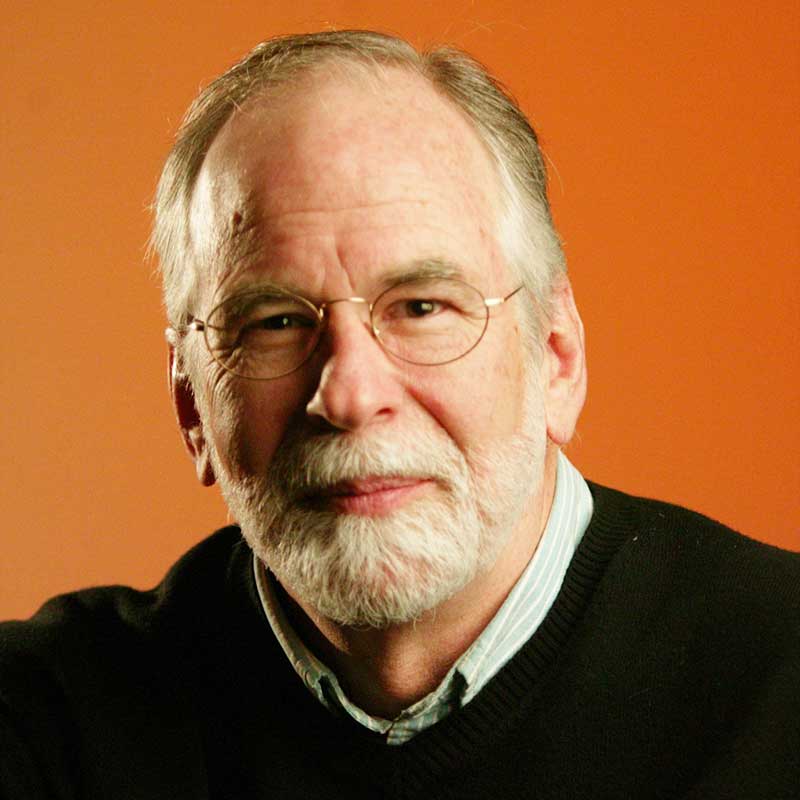 American Transcendentalism, its persistence in 20th century literature: Wallace Stevens, The Beats, Ken Kesey and others.
American Transcendentalism, its persistence in 20th century literature: Wallace Stevens, The Beats, Ken Kesey and others. Romanticism developed in a number of ways in Europe, but the earliest version that influenced other variations on the movement was German. And it was German romanticism that bloomed in Concord, Massachusetts in the first half of the 19th century. Ralph Waldo Emerson, Amos Bronson Alcott (Louisa May Alcott’s father), Margaret Fuller (who arguably the brains of the outfit), the young Hawthorne and later on Melville and Thoreau and a few others who called themselves “the club of the like-minded” as a joke because they could agree on almost nothing. Emerson was the traveling spokesman (at his height he gave over 300 lectures one year) for the particularly American form of Romanticism that came to be known as Transcendentalism. This movement encouraged self-expression and development, the cultivation of especially American themes , self-consciousness and awareness, and, like all good Romantics, the plumbing the depths of emotion in pursuit of the potent reality of the self. At its worst it became what Emerson called “the sty of self-indulgence.” At its best Transcendentalism encouraged a pursuit of personal truth in the face of all obstacles and social frauds that abounded. Fade out the 19th century, fade in the 20th. Modernism becomes a catch-all for literary and artistic movements to “make it new” (Ezra Pound’s phrase). But there at the core of Modernism lingered the potent cult of the self from the previous century. And linger it did through the poetry of Wallace Stevens, then the “confessional poets” (like John Berryman and Denise Levertov, e.g.), The Beats (Ginsberg, Corso, Jack Kerouac, et. Al.) and finally Oregon’s own Ken Kesey whose public persona and powerful novels resonated with that 120-year-old song of Transcendentalism. Let’s explore this intellectual heritage together. Michael Strelow was a professor of English at Willamette University for 35 years beginning in 1980. He received two Fulbright scholarships (to Spain and to China) and published nine books: two academic books (one on Ken Kesey), four literary fiction novels, and three Middle Grade chapter books for children. He is busily retired and continues writing. His B.A. and M.A. were from Miami University (Ohio) and Ph.D. from the University of Oregon. |
| 1:00 pm-3:00 pm | "ICL Tech Talk #1," - CANCELED |
Thursday, September 29
| 10:00 am-11:00 am | "Music as a Mirror of History: Berg on Wozzeck," Dr. Robert Greenberg [Solveig Holmquist], Kaneko Auditorium 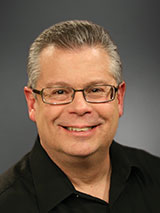 Lecture 20: Berg: Wozzeck (1922) - Johann Franz Wozzeck, the title character and protagonist of Alban Berg's opera, is a 37-year-old militia man. He is also slowly going insane, something we become aware of in the first act, when he begins to hal;lucinate. The disconcerting scene ends with Wozzeck's words; "Still, all is istill, and all the world is dead."
Lecture 20: Berg: Wozzeck (1922) - Johann Franz Wozzeck, the title character and protagonist of Alban Berg's opera, is a 37-year-old militia man. He is also slowly going insane, something we become aware of in the first act, when he begins to hal;lucinate. The disconcerting scene ends with Wozzeck's words; "Still, all is istill, and all the world is dead."Composed during and after World War I, this scene reflects not just the damaged mind of Wozzeck but also that of a doomed generation. According to musicologist Glenn Watkins, "This scene is as vivid a projection of impending world doom as any to come out of the Great War". Dr. Robert Greenberg, Music Historian-in-Residence San Francisco Performances |
| 11:00 am-12:00 pm | "Delving Further into Berg's Vocal Compositions," Solveig Holmqu, Kaneko Auditorium 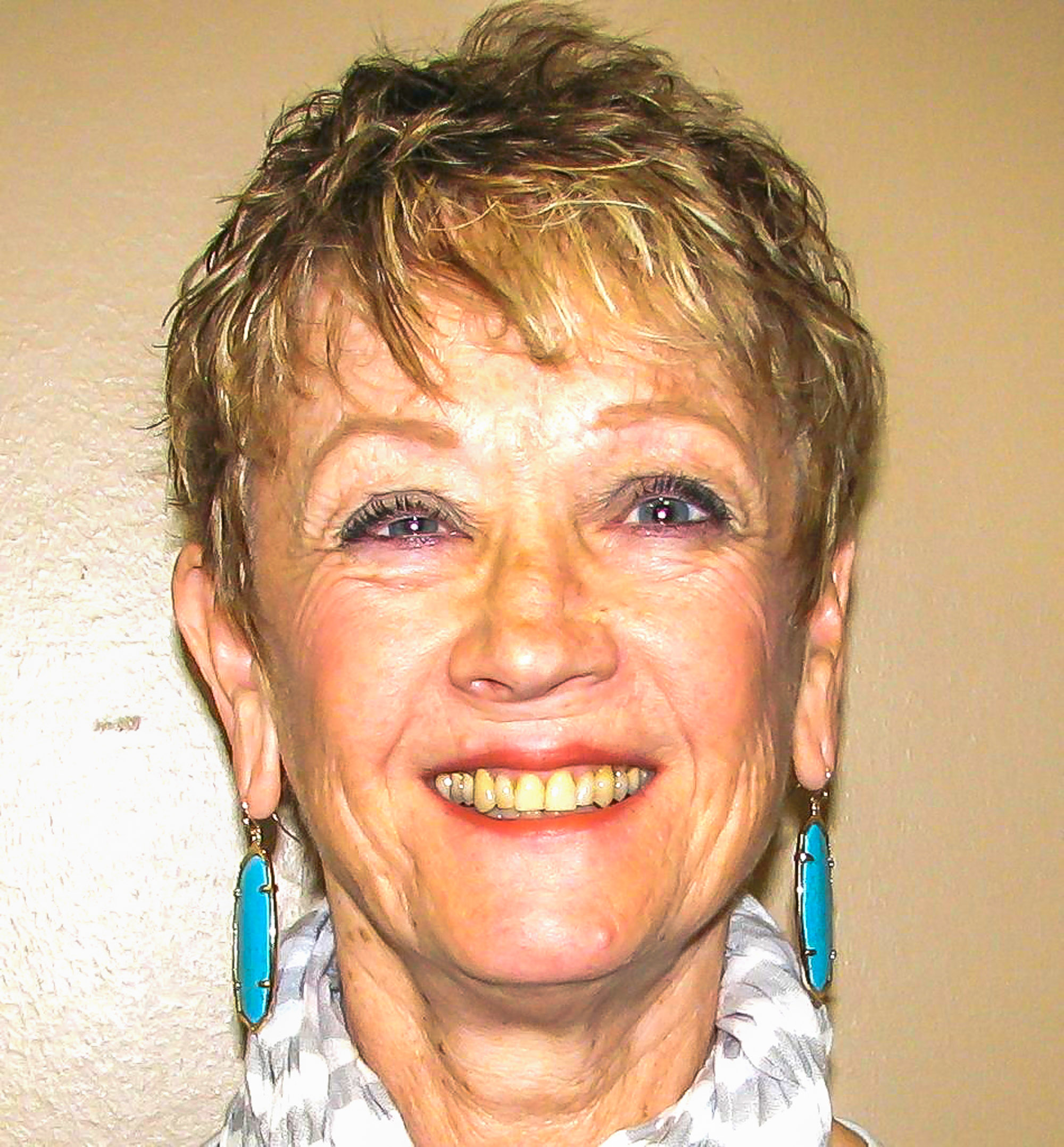 Alban Maria Johannes Berg (1885-1935) was an Austrian composer of the Second Viennese School. His compositional style combined Romantic lyricism with the twelve-tone technique. Although he left a relatively small oeuvre, he is remembered as one of the most important composers of the 20th century for his expressive style encompassing "entire worlds of emotion and structure".
Alban Maria Johannes Berg (1885-1935) was an Austrian composer of the Second Viennese School. His compositional style combined Romantic lyricism with the twelve-tone technique. Although he left a relatively small oeuvre, he is remembered as one of the most important composers of the 20th century for his expressive style encompassing "entire worlds of emotion and structure".Berg was born and lived in Vienna. He began to compose at the age of fifteen. He studied counterpoint, music theory and harmony with Arnold Schoenberg between 1904 and 1911, and adopted his principles of developing variation and the twelve-tone technique. Berg's major works include the operas Wozzeck (1924) and Lulu (1935, finished posthumously), the chamber pieces Lyric Suite and Chamber Concerto, as well as a Violin Concerto. He also composed a number of songs (lieder). He is said to have brought more "human values" to the twelve-tone system, his works seen as more "emotional" than Schoenberg's. His music had a surface glamour that won him admirers when Schoenberg himself had few. In this second hour, we will examine and hear a number of Berg's works for voice, in which we will focus on the lyricism for which Berg is known, demonstrating his gift for text painting, which is the technique of musical embodiment of words. This can be accomplished in a number of ways, including selection of a key center, rhythmic effects, melodic shape, and focus on certain key words. Hopefully, we will gain insight as to why he has considerably more admirers than his teacher Schoenbeerg. Member, Solveig Holmquist, DMA is the ICL Music Curriculum Coordinator and once again enlightens us on musical history and appreciation. Whether you are musically trained or not, Solveig and Dr Greenberg never fail to open us to something new. |



